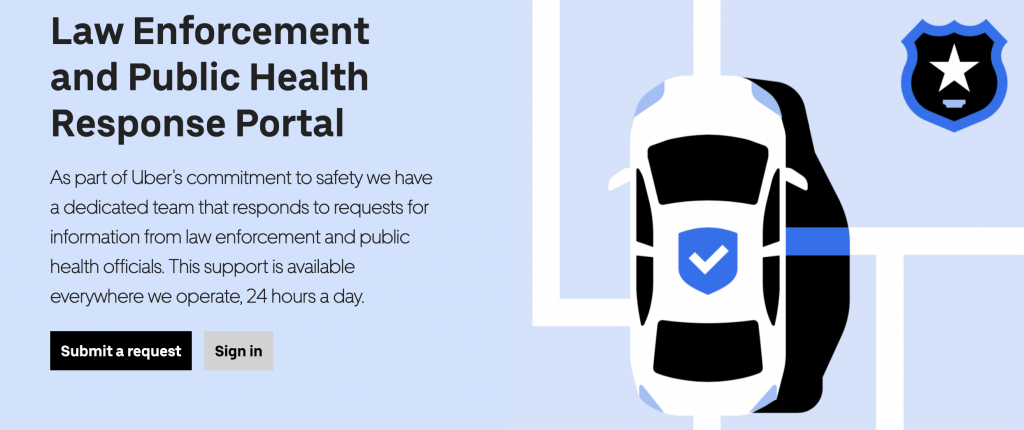
News
Uber teams up with law enforcement for safer communities
In light of the COVID-19 pandemic, the portal for Uber Law Enforcement Operations is now equipped to receive and respond to requests for information from public health departments conducting contact tracing investigations
June 26, 2020 By Staff
 Image: Uber
Image: Uber According to Uber, it sees an average of 18 million trips a day and, as it is a technology transportation company whose platform physically integrates into its communities, data from the Uber platform can and has helped law enforcement solve an array of criminal investigations.
“Whether it is finding a wanted fugitive, identifying a person who is targeting children, locating a missing juvenile, or contacting a rider or driver who may have been a witness to a violent crime, Uber is committed to working with law enforcement to make the communities we operate in safer,” the company states.
As Uber grows and expands into new areas of opportunity, it notes it is “paramount that safety continues to be a top priority.” Part of that effort was the creation of Uber’s Law Enforcement Operations team. The team’s goal is to “make Uber the mobility platform law enforcement trusts the most via engagement, partnership and response.”
Uber Law Enforcement Operations consists of two teams, Outreach and Response. The Outreach team is made up of former law enforcement professionals turned regional liaisons whose primary responsibility is to engage and partner with law enforcement at all levels. The team achieves these objectives by educating law enforcement on how Uber works as a platform, the data captured and how to obtain that data during a criminal investigation or critical incident.
The other component is the Law Enforcement Response Team. Their primary responsibility is to respond to law enforcement requests for information — whether it’s an emergency situation or a legal process request. This team operates on 24/7 basis with personnel around the world working in concert with one another.
The Law Enforcement Response Team manages legal process and emergency requests utilizing Uber’s online portal: www.lert.uber.com. The Response Team will validate law enforcement credentials based on the information provided by the officer or agent submitting a request. The portal contains Uber’s legal guidelines for data requests and frequently asked questions.
“The response team has been a crucial partner in assisting law enforcement around the world with providing information during critical incidents such as the Easter terrorist attacks in Sri Lanka and the Route 91 shooting in Las Vegas,” the company states.
Recently, Uber Law Enforcement Operations added a much-needed feature to the portal in light of the COVID-19 pandemic. The portal is now equipped to receive and respond to requests for information from public health departments conducting contact tracing investigations. The portal includes resources and instructions on the process for public health departments to submit their requests through the portal. The response team has been responding to public health requests for several months now, even before the initial spread of COVID-19.
To learn more about Uber’s LERT team and how Uber’s data can be used during an investigation, contact a regional liaison. For example, Nick Pailthorpe is based in Toronto and is helping build and lead Uber Canada’s Law Enforcement Operations Team in conjunction with the global head office in San Francisco.
Before joining Uber in Canada, Pailthorpe spent three years in Amsterdam covering Europe, Africa, and the Middle East for Uber in the same role.
Pailthorpe was formally a detective in the Metropolitan Police, U.K., where he worked for 10 years in various specialist commands. Towards the end of his service, he worked in the Metropolitan Police Cyber Crime Unit, where he was a digital media and fraud investigator. If you are interested in scheduling a training, email Pailthorpe at nickp@uber.com.
Print this page


